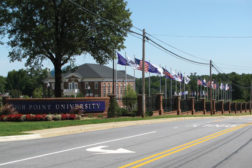Web Exclusive Stories
The old adage “good fences make for good neighbors” holds true for businesses, as fences can play a strong role in a company’s security policies.
A Good Defence
December 22, 2010
Sign-up to receive top management & result-driven techniques in the industry.
Join over 20,000+ industry leaders who receive our premium content.
SIGN UP TODAY!Copyright ©2024. All Rights Reserved BNP Media.
Design, CMS, Hosting & Web Development :: ePublishing




